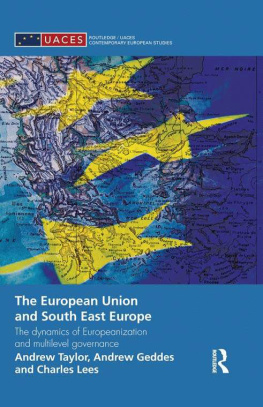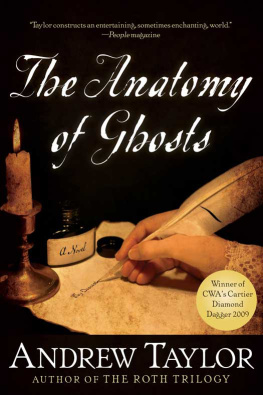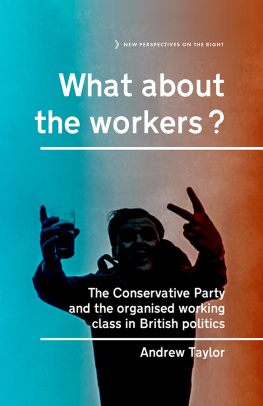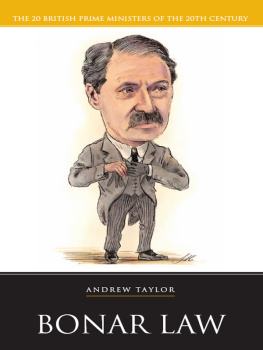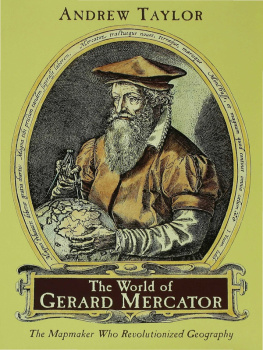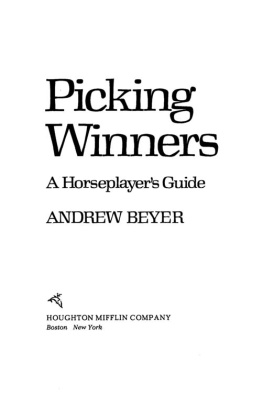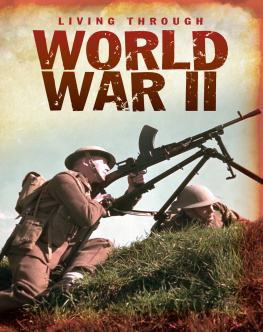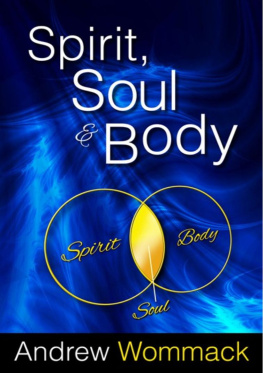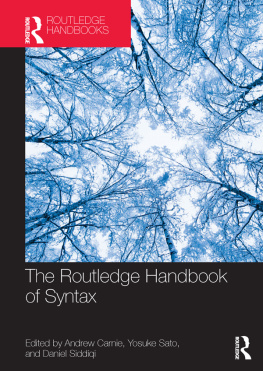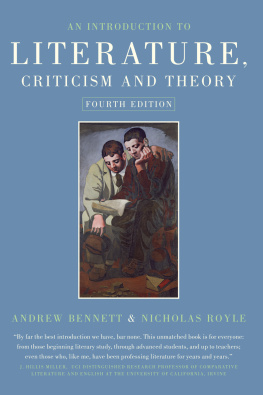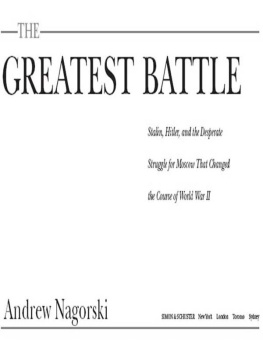Andrew Taylor - Books That Changed the World
Here you can read online Andrew Taylor - Books That Changed the World full text of the book (entire story) in english for free. Download pdf and epub, get meaning, cover and reviews about this ebook. year: 2014, publisher: Quercus Publishing Plc, genre: Religion. Description of the work, (preface) as well as reviews are available. Best literature library LitArk.com created for fans of good reading and offers a wide selection of genres:
Romance novel
Science fiction
Adventure
Detective
Science
History
Home and family
Prose
Art
Politics
Computer
Non-fiction
Religion
Business
Children
Humor
Choose a favorite category and find really read worthwhile books. Enjoy immersion in the world of imagination, feel the emotions of the characters or learn something new for yourself, make an fascinating discovery.

- Book:Books That Changed the World
- Author:
- Publisher:Quercus Publishing Plc
- Genre:
- Year:2014
- Rating:3 / 5
- Favourites:Add to favourites
- Your mark:
- 60
- 1
- 2
- 3
- 4
- 5
Books That Changed the World: summary, description and annotation
We offer to read an annotation, description, summary or preface (depends on what the author of the book "Books That Changed the World" wrote himself). If you haven't found the necessary information about the book — write in the comments, we will try to find it.
Books That Changed the World — read online for free the complete book (whole text) full work
Below is the text of the book, divided by pages. System saving the place of the last page read, allows you to conveniently read the book "Books That Changed the World" online for free, without having to search again every time where you left off. Put a bookmark, and you can go to the page where you finished reading at any time.
Font size:
Interval:
Bookmark:
Andrew Taylor is the author of Walking Wounded: the Life and Poetry of Vernon Scannell; Gods Fugitive: the Life of C. M. Doughty and A Plum in Your Mouth, among a total of ten books. He has worked as a journalist in television, newspapers and magazines in Britain and the Middle East.
The 50 Most Influential Books in Human History
Andrew Taylor

First published in hardback 2008 by Quercus Editions Ltd
This is the ebook edition published in 2014 by
Quercus Editions Ltd
55 Baker Street
Seventh Floor, South Block
London
W1U 8EW
Copyright Andrew Taylor 2008, 2014
The moral right of Andrew Taylor to be identified as the author of this work has been asserted in accordance with the Copyright, Designs and Patents Act, 1988.
All rights reserved. No part of this publication may be reproduced or transmitted in any form or by any means, electronic or mechanical, including photocopy, recording, or any information storage and retrieval system, without permission in writing from the publisher.
A CIP catalogue record for this book is available from the British Library
eBook ISBN 978 1 84916 561 7
Print ISBN 978 1 78206 942 3
You can find this and many other great books at:
www.quercusbooks.co.uk
c. 8TH CENTURY
Homer
5TH CENTURY BC
Herodotus
5TH CENTURY BC
Confucius
4TH CENTURY BC
Plato
2ND CENTURY BC2ND CENTURY AD
2313 BC
Horace
c. AD 100170
Ptolemy
2ND OR 3RD CENTURY AD
Mallanaga Vatsyayana
7TH CENTURY
1025
Avicenna
1380s90s
Geoffrey Chaucer
1532
Niccol Machiavelli
158595
Gerard Mercator
160515
Miguel de Cervantes
1623
William Shakespeare
1628
William Harvey
1632
Galileo Galilei
1687
Isaac Newton
1755
Samuel Johnson
1774
Johann Wolfgang von Goethe
1776
Adam Smith
1776
Thomas Paine
1798
William Wordsworth and Samuel Taylor Coleridge
1813
Jane Austen
1843
Charles Dickens
1848
Karl Marx
1851
Herman Melville
1852
Harriet Beecher Stowe
1857
Gustave Flaubert
1859
Charles Darwin
1859
John Stuart Mill
1869
Leo Tolstoy
1878
New Haven District Telephone Company
1885
Translated by Sir Richard Burton
1888
Arthur Conan Doyle
1899
Sigmund Freud
1905
1920
Wilfred Owen
1920
Albert Einstein
1922
James Joyce
1928
D.H. Lawrence
1936
John Maynard Keynes
1947
Primo Levi
1949
George Orwell
1949
Simone de Beauvoir
1951
J.D. Salinger
1958
Chinua Achebe
1962
Rachel Carson
1964
Mao Zedong
1997
J.K. Rowling
How can we ever change the world? Military leaders, such as Genghis Khan or Napoleon have certainly managed to change large parts of it, though generally not for as long as they expected; scientists devising cures and vaccines for disease can spread a more benign influence across whole continents; the thoughts of religious leaders or philosophers, like Jesus Christ, Mohammed, Plato or Confucius, can sweep through generations like fire. But books?
Reading books is generally a solitary, unassuming pastime: bookishness is the very antithesis of the man-of-action qualities that seem to shake the world by the scruff of its neck. The pen may boast of being mightier than the sword, but it is generally the sword that wins in the short term. It is that phrase, though, which gives the game away: in the short term, writers can be bullied, imprisoned or executed, their work censored, and their books burned, but over the long sweep of history, it is books and the ideas expressed within them that have transformed the world.
From the first cave paintings 30,000 years ago, the passing on of thoughts and ideas from one person to another, from one generation to another, has been the key to civilization. For centuries, this could only be done by painstakingly copying one manuscript to another, or by memorizing long screeds of poetry the works of Homer, for instance, survived for maybe 200 years before being written down. Then there was the transformative technology of print, first in the East, much later in the West. The Diamond Sutra, an ancient Buddhist text printed in China in AD 868, is thought to be the oldest printed book surviving, pre-dating Gutenbergs Bible in Europe by nearly six centuries. With print, philosophers, theologians, historians, scientists and poets could pass on their ideas about life, about the world, about eternity and the present moment, about the way that people have thought and behaved in the past, and about how they always think and behave to hundreds, even thousands of people at a time.
As a result, people who may never have heard of the Flemish cartographer Mercator of Rupelmonde still carry in their heads today a picture of the world that he devised 400 years ago; Odysseus, Don Quixote and Ebenezer Scrooge are familiar characters to children to whom the names of Homer, Cervantes and Dickens may mean nothing. The patient on the operating table may not know about William Harvey, but he has good reason to be grateful for The Motion of the Heart and Blood; because of the compilers of Shakespeares First Folio, people who have never seen his plays may still describe themselves as tongue-tied or tell others they are living in a fools paradise. In great ways and small, books spread their influence, even among those who never turn their pages.
But which books? There are few better ways of starting an argument than producing a list, whether it purports to rank the best opera singers, the most influential politicians or the greatest footballers, and I have been left in no doubt over the last few months about the passion with which people will defend favourite books and authors whom they feel to have been unjustly excluded. About some on the list, like the Bible and the Quran, Shakespeares First Folio and Darwins On the Origin of Species, there can be little argument but where are Euclids Elements or Thomas Mores Utopia? Eliot, either George or T.S., depending on your point of view? How could you choose Dickenss A Christmas Carol rather than Bleak House or David Copper field? Or The Pickwick Papers? What about Thomas Paines Rights of Man or A Vindication of the Rights of Women by Mary Wollstonecraft?
The answer is that any list can only be subjective. These are the books that, in their different ways, have changed my world but they are also books that I believe have demonstrably changed the world in one way or another for millions of other people. Often, they have enhanced the richness of human experience; sometimes, their civilizing effect, or otherwise, depends on the views one holds, a category that includes the great religious books. And very occasionally, books such as
Next pageFont size:
Interval:
Bookmark:
Similar books «Books That Changed the World»
Look at similar books to Books That Changed the World. We have selected literature similar in name and meaning in the hope of providing readers with more options to find new, interesting, not yet read works.
Discussion, reviews of the book Books That Changed the World and just readers' own opinions. Leave your comments, write what you think about the work, its meaning or the main characters. Specify what exactly you liked and what you didn't like, and why you think so.

